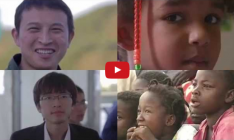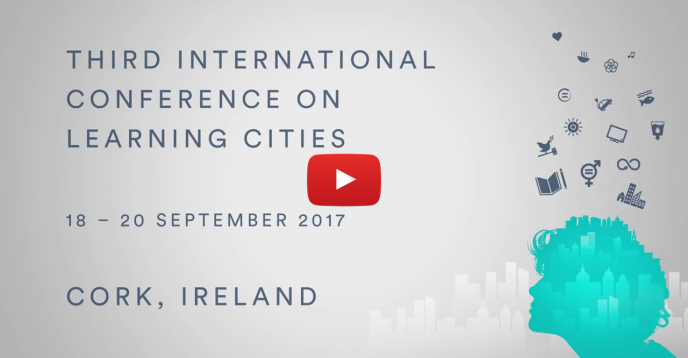Cork, Ireland, 18 September 2017 - More than 700 local government representatives from more than 80 countries across the world will attend UNESCO’s third International Conference on Learning Cities, which opens today in Cork, Ireland. More than half the world’s population live in cities, with the proportion expected to rise to two-thirds by 2050. To achieve all-round development, the central role of cities in creating change, fostering inclusion and promoting sustainability must be fully recognized and explored. This conference brings together key city stakeholders to share and discuss their experiences and identify good practice in using education and learning as drivers of sustainable development.
‘Cities are key actors for peace and development in the century ahead – our challenge is to ensure that this peace is lasting, that this development is sustainable,’ said Ms Irina Bokova, Director-General of UNESCO, in her conference message. She added that ‘lifelong learning stands at the heart of the 2030 Agenda for Sustainable Development’, noting that lifelong learning is more than adult education and technical vocational education, and should be understood as going beyond the walls of classrooms, to include non-formal and informal learning.
The UNESCO Institute for Lifelong Learning (UIL) has been instrumental in building the UNESCO Global Network of Learning Cities. The network was established in 2013 and currently comprises more than 200 member cities from across the world. The network is open to all cities of the world so long as they foster education and lifelong learning in their pursuit of development and sustainability. The city of Cork joined the global network in 2015 and is an example of a learning city that has evolved progressively in providing learning opportunities to its citizens. It is also holder of a 2015 Learning City Award.
The UNESCO Learning City Award is conferred on cities in the network that have made outstanding progress in building learning cities by implementing UNESCO’s Key Features of Learning Cities. This year, 16 cities from around the world will receive the award during the conference in Cork. The cities are: Bristol (United Kingdom of Great Britain and Northern Ireland), Câmara de Lobos (Portugal), Contagem (Brazil), Gelsenkirchen (Germany), Giza (Egypt), Hangzhou (China), Larissa (Greece), Limerick (Ireland), Mayo-Baléo (Cameroon), N’Zérékoré (Guinea), Okayama (Japan), Pécs (Hungary), Surabaya (Indonesia), Suwon (Republic of Korea), Tunis (Tunisia) and Villa María (Argentina).
As leaders, experts and stakeholders gather in Cork, it is important to recognize and celebrate the accomplishments of cities in creating inclusive, resilient and sustainable societies. UNESCO calls upon local governments to embrace education and lifelong learning as a foundation for sustainable development and to contextualize global goals into their various localities, communities and societies. This is essential for cities seeking to maximize their impact on the lives, livelihoods and wellbeing of their citizens and for us all in achieving, together, our shared global vision of a better world for this and future generations.
###
Media contacts:
UNESCO Institute for Lifelong Learning
Faith Miyandazi, Head of Public Relations, UNESCO Institute for Lifelong Learning
Email: uil-pr@unesco.org
Michelle Diederichs, UNESCO Institute for Lifelong Learning
Email: learningcities@unesco.org
Cork City
Fiona Ryan, Senior PR Account Manager, Hopkins Communications
Email: fiona@hopkinscommunications.ie
Mobile: +353877717706




